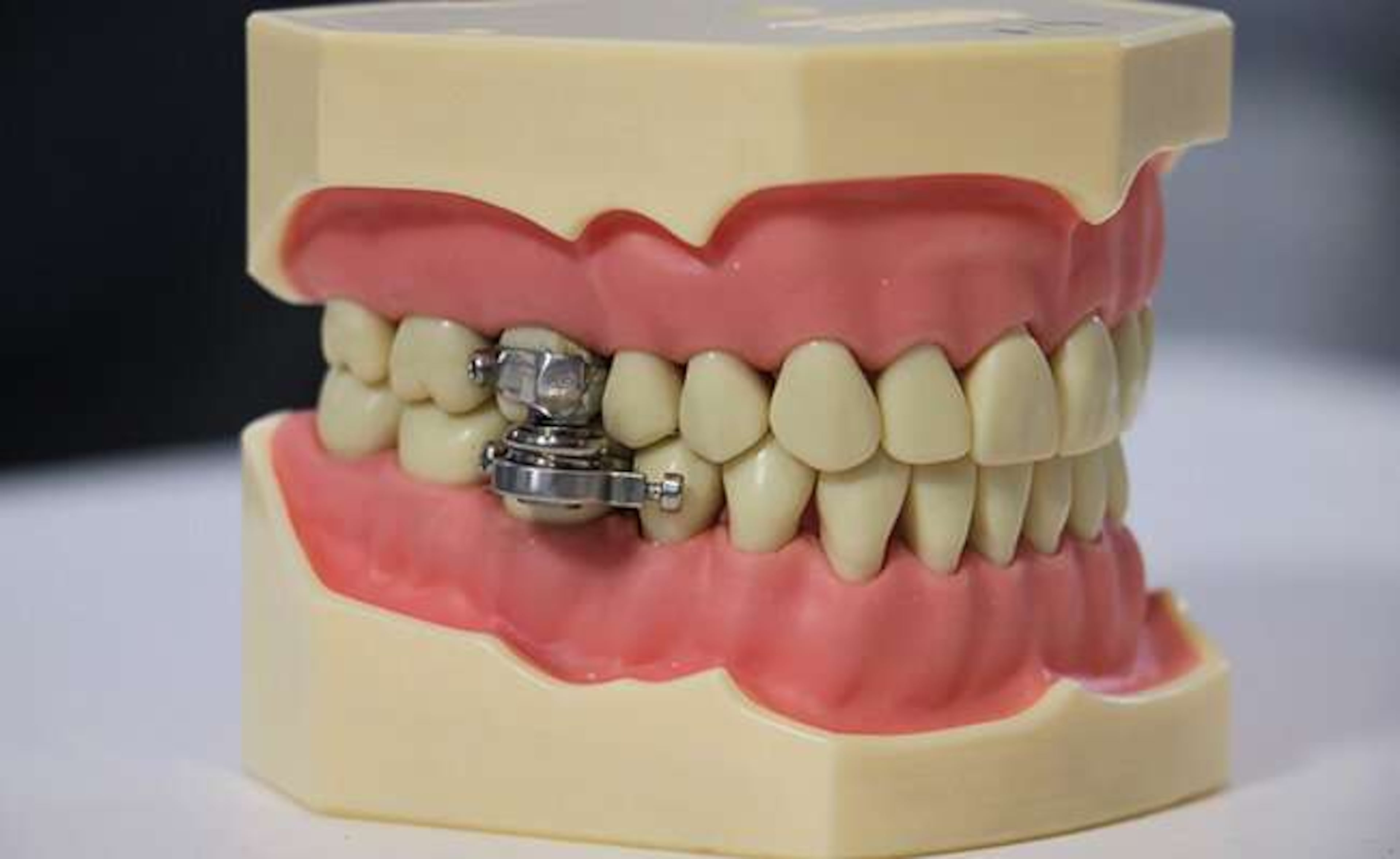Researchers develop world’s first weight loss device
Researchers at New Zealand’s University of Otago and in the United Kingdom have developed what they say is the world’s first weight loss device to help fight the global obesity epidemic.
DentalSlim Diet Control is fitted by a dental professional to the upper and lower back teeth. It uses magnetic devices with custom-manufactured locking bolts. It allows the wearer to open their mouth only about 2mm, restricting them to a liquid diet, but it allows free speech and doesn’t restrict breathing.
Participants in a trial study lost an average of 14 pounds in two weeks and were motivated to continue with their weight loss journey, the researchers said in a press release.

According to professor Paul Brunton, the lead researcher and University of Otago Health Sciences pro vice chancellor, the device will be “an effective, safe and affordable tool for people battling obesity.” DentalSlim Diet Control is fitted by a dentist, but can be released by the wearer if there is an emergency.
Although study participants were given a tool in case of an emergency, none needed to use it, the researchers said. All said the device was tolerable, but the design has since been improved, making it smaller to improve functional comfort and aesthetics.
“The main barrier for people for successful weight loss is compliance, and this helps them establish new habits, allowing them to comply with a low-calorie diet for a period of time. It really kick-starts the process,” Brunton said in the press release.
“It is a non-invasive, reversible, economical and attractive alternative to surgical procedures.
“The fact is, there are no adverse consequences with this device.”
Recent studies have shown nearly 2 billion adults worldwide are overweight, and 650 million are obese. Being overweight or obese results in about 2.8 million deaths a year. It is estimated about 57% of the world’s adult population will be overweight or obese by 2030.
“In addition, psychological symptoms may be present, including embarrassment, depression and loss of self-esteem and obese people may suffer eating disorders together with stigmatization and discrimination,” Brunton said.
The researchers pointed out that although bariatric surgery plays a major role in the management of morbid obesity, it is expensive — $24,000 — and patients “live with the consequences of that for life, which can be quite unpleasant.”
“The beauty of it,” Brunton said “is that once patients are fitted with the device, after two or three weeks they can have the magnets disengaged. They could then have a period with a less restricted diet and then go back into treatment. This would allow for a phased approach to weight loss supported by advice from a dietician, allowing long term weight loss goals to be realized.”
The study was published Monday in British Dental Journal. You can read the full study here.
For more content like this, sign up for the Pulse newsletter here.


